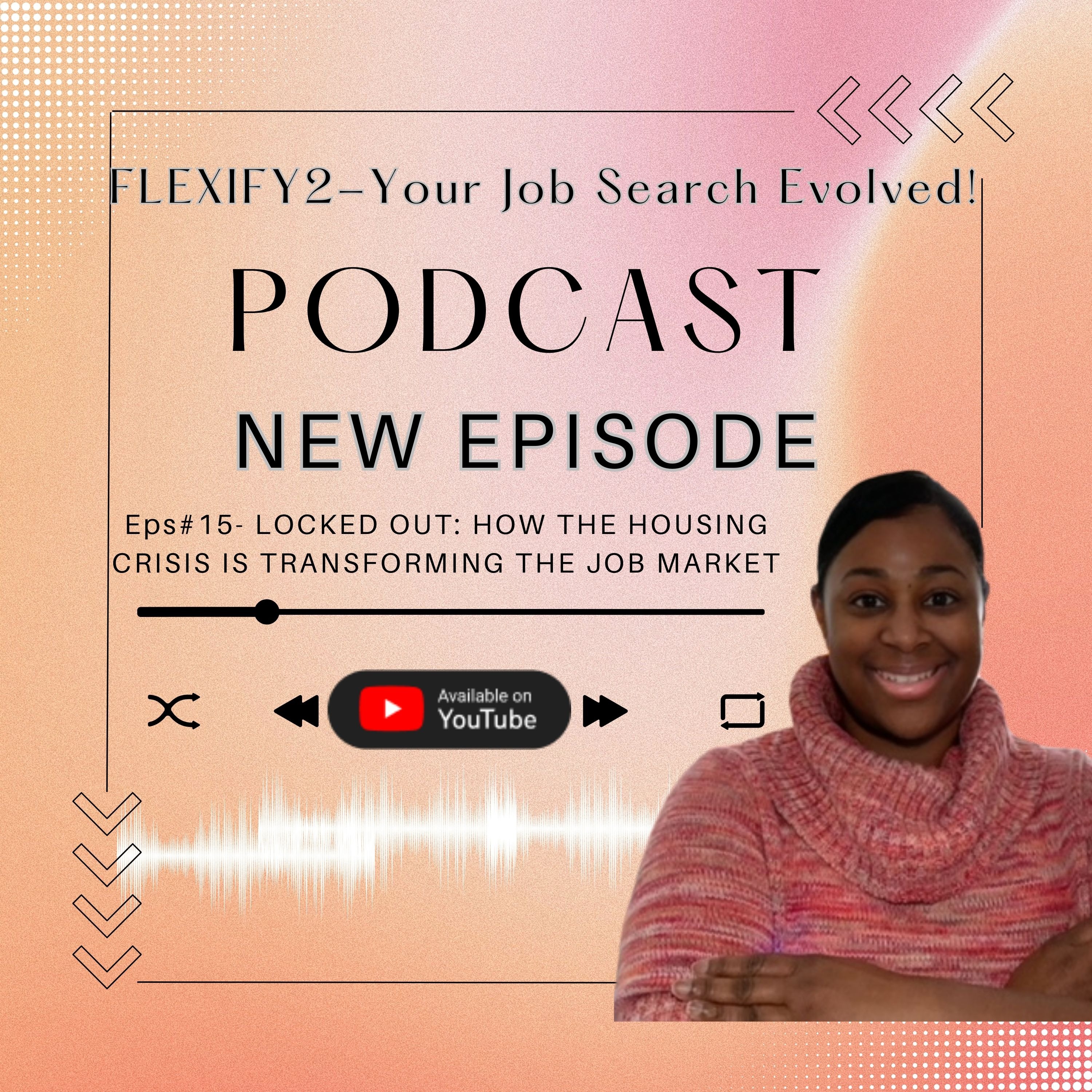Locked Out: How The Housing Crisis Is Transforming The Job Market
- Author
- T. Smith
- Published
- Sun 18 May 2025
- Episode Link
- https://rss.com/podcasts/the-2025-economy-job-market-your-january-outlook/2034731
LOCKED OUT: HOW THE HOUSING CRISIS IS TRANSFORMING THE JOB MARKET
Welcome to FLEXIFY2: “Your Job Search Evolved.” I’m Trina, and today we’re diving into how the housing crisis is reshaping where—and if—people can get hired.
Key Stats and Stories
- Home prices are up 50% in five years; major city rents up 25% since 2020.
- Example: A skilled developer turns down a $150K San Francisco job—housing would have eaten 50% of her pay. The company hires someone less qualified, just because they already lived nearby.
- This isn’t rare—it’s happening everywhere.
The New Geography of Opportunity
- “Go where the jobs are” doesn’t work when you can’t afford to live there.
- 71% of surveyed job seekers skipped applying for jobs in high-cost areas.
- 83% of professionals aged 25-40 limit their searches to places where housing is <35% of their income.
- Employers now get filtered out based on location before salary or culture even matter.
- Remote work is a game changer: 62% of workers 22-65 work remotely at least some of the time, using it to avoid housing constraints.
Hidden Barriers for Job Seekers
- Address discrimination: Where you live affects your callback rate.
- Housing instability: Worrying about rent hurts interview performance.
- Long commutes: Unaffordable housing often means you’re too far for interviews and work.
- Relocation hesitancy: Employers are wary you won’t stick around if the move isn’t sustainable.
- Network isolation: Living far from job centers means weaker professional networks.
Remote work helps, but only if your job can go remote. Many can’t.
How Companies Are Responding
- Remote/hybrid work is here to stay—29% hybrid, 13% fully remote, 58% have some remote flexibility.
- Remote job postings are still up nearly 10x from pre-pandemic levels.
- New benefits: location-adjusted salaries, housing stipends (Microsoft’s $30K supplement), direct housing help (Amazon owns apartments, Google wants to build 20,000 units).
- Mid-sized firms provide rent deposits, moving help, and subsidies.
- Relocation trend: Companies are moving HQs to more affordable cities (Nashville has over 180 company relocations in two years).
Labor Shortages & the Unemployment Paradox
- Expensive cities: jobs go unfilled because workers can’t live close enough.
- Outlying regions: unemployment stays high, but jobs are too far/expensive to reach.
- 75,000+ open jobs in the Bay Area, while neighboring counties have above-average unemployment.
- Remote work is helping knowledge workers—17% of Americans moved or know someone who moved because of remote options.
Advice for Job Seekers
- Make housing costs a key job search filter from day one.
- Bring up housing realities in salary talks: “For this job to work, I’ll need "X" based on local rent.”
- Prioritize employers with housing benefits/assistance.
- Focus on remote-first companies (not just remote-allowed) for true flexibility and advancement.
- Consider “remote-friendly” cities—lower cost, strong digital infrastructure (Chattanooga,TN Bend, OR Tulsa, OK).
Check out my Top 100 Interview Questions eBook on Etsy!
